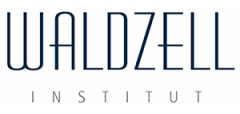Waldzell Insights from 2004 – 2008
DG: It has been my pleasure to have taken part in every Waldzell Meeting at Melk Abbey since the first one in 2004. Ms. Gundula Schatz, one of the founders, our moderator Alan Webber, Abbots Burkhard Ellegast and Georg Wilfinger, and I, are probably the only five people here who can claim to have been involved in all the Waldzell Meetings from the beginning. So I feel honored to have been asked to start off this 2008 meeting by talking of my experiences of Waldzell.
If I have particularly vivid memories of the first meeting in September 2004, it is not only because for me it was the most exhilarating, positive, intellectually stimulating experience in 40 years of attending hundreds of conferences, but also because it enables me to begin by telling a story against myself.
I would be speaking at the first session along with Peace Prize winner Shirin Ebadi, and we each had thirty to forty minutes, in which to talk about the meaning of life and the religious and philosophical influences that motivated us in our work. I even managed to say something that struck many listeners, because they repeated it to me afterwards. What I had said was that I find I have more in common with tolerant people of other religions than with intolerant ones of my own religion. The applause, when I sat down, sounded genuine.
It was the most exhilarating, intellectually stimulating one I had ever attended, not only because of the calibre of the other speakers, not only because we were all aware of taking part in a new and original venture in the idyllic and contemplative environs of Melk Abbey, not only because most of us and our partners got on enormously well together, so that lasting friendships were formed, but also because there were precious moments of shared insight and understanding between the participants and the audience that united us in our common humanity as Jews, Christians and Muslims, scientists and artists, believers and atheists.
After such an enlightening and horizon-broadening first conference, it was inevitable, I suppose, that, for those of us who had been there, the second conference in 2005 would be something of an anticlimax, but not for the new participants.
The speakers were no less distinguished, including the wise and gentle Christian de Duve, 1974 Nobel Prize winner in Medicine; Craig Venter, the remarkable and controversial geneticist; Tenzin Palmo, an inspirational London-born Buddhist nun who had spent twelve years on her own in a small cave 4,000 meters above sea level in the Himalayas; and my friend and colleague, Rabbi Jonathan Wittenberg.
2005 saw the introduction of the Architects of the Future, under the guidance of their patron, the great writer Paolo Coelho. These were sixteen young people of vision and energy who were involved in projects to make the world a better place.
From Waldzell 2006, I remember in particular the enormous presence and quality of controlled stillness, like an Aztec carving, that emanated from Oscar Motomura, the Brazilian founder of the Centre for Excellence in Management, and the bubbling effervescent personality of writer Isabel Allende.
From 2007, who could top the single greatest coup achieved by the Waldzell organizers among all the eminent personalities they had previously invited? To spend two days in the company of His Holiness the Dalai Lama, listening and talking to him, praying with him, seeing the veneration with which his Buddhist followers greeted him in Melk Abbey, ranks, for me, right up there alongside memorable experiences.
So, as the motto of the Waldzell Institute puts it, what remains at the end of the day? For me, it has been about making new friends I would never otherwise have met, and being exposed to some people of extraordinary intellect and others of deep spiritual insight. It has not always been comfortable. Learning about amazing scientific advances in the fields of DNA tracking and embryonic stem cell research, leaves an ever-decreasing space for God to function in, and has put further strain on my faith, which I usually describe as devout agnosticism. But it is a poor day when you do not learn something new. Waldzell has provided me with that opportunity in a variety of stimulating ways.
Listening to the Architects of the Future and their wonderful work in bettering the lives of others, along with admiration, I would feel a twinge of envy, for in comparison I have spent my career mainly dealing with middle-class concerns in comfortable surroundings.
Have we discovered the meaning of life in our four previous meetings at Melk? Of course not. It amused me in 2007 when someone in the audience to the Dalai Lama asked, with great reverence, “Your Holiness, would you tell us what you think is the meaning of life?” The Dalai Lama gave that infectious high-pitched chuckle of his and replied, “I don’t know, I’m just a simple monk.” I am sure that many people in the audience thought, “gosh, what a profound insight to unravel.” But it wasn’t, it was only the plain truth. As with Socrates, the beginning of wisdom is to know how much we do not know.
In Hermann Hesse’s novel, The Glass Bead Game, the players gathered once a year in mythical Waldzell to create a universal blueprint for the wellbeing of the individual and society. In that spirit, let us continue the quest for meaning here, not in mythical but in reassuringly solid Melk Abbey, and may Waldzell 2008 be as intellectually provocative and as spiritually uplifting as the four previous conferences.
